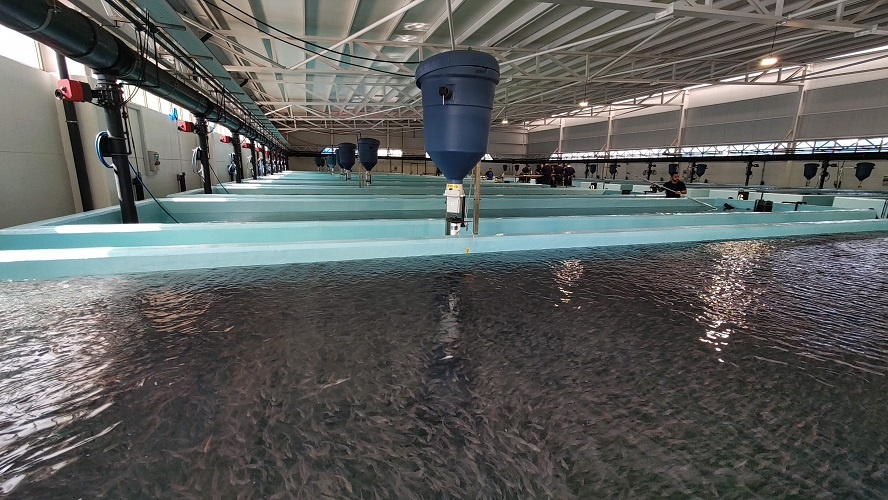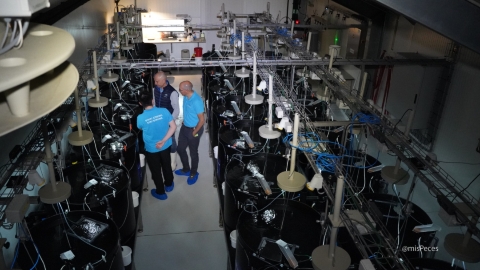 Seabream nursery facility
Seabream nursery facility
A team of researchers at the Instituto de Acuicultura Torre de la Sal (IATS-CSIC) has revealed how extreme heat, linked to climate change, impacts the gut microbiota of gilthead seabream (Sparus aurata), one of the Mediterranean’s most widely farmed fish. The study, recently published in Aquaculture Reports, outlines dietary strategies to mitigate these effects, paving the way for more sustainable aquaculture practices.
During the record-breaking summer of 2022, when water temperatures reached 39.49ºC, scientists fed gilthead seabream with experimental diets differing in lipid levels and emulsifiers.
The results showed that extreme heat drastically altered the fish’s gut microbiota, significantly increasing the prevalence of the bacteria genus Brevinema, which is associated with intestinal health imbalances.
Changes in the microbiota are a clear sign of heat stress, explained the researchers. However, they found that this effect could be mitigated through feeds with reduced lipid content and the addition of emulsifiers, which helped lower stress markers such as cortisol and glucose levels in the blood.
About the Study
The researchers tested four experimental diets combining different lipid levels (16% and 14%) and the inclusion of the commercial emulsifier Volamel Aqua, supplied by Nukamel NV, a Belgium-based company. These diets were designed to alleviate physiological stress associated with extreme heat, improve gut homeostasis, and restore fish health markets.
The team focused on assessing how these diets influenced the gut microbiota composition, identifying significant changes in key bacteria like Brevinema. This genus, which increased considerably under extreme heat conditions, was identified as a potential biomarker of heat stress.
Furthermore, the adapted diets demonstrated positive effects by reducing cortisol and glucose levels, widely recognised indicators of fish stress.
This trial provides valuable insights into developing feeding strategies resilient to climate change, offering new opportunities to enhance the sustainability and efficiency of aquaculture in vulnerable regions such as the Mediterranean.
Reference:
R. Domingo-Bretón, S. Cools, F. Moroni, A. Belenguer, J.A. Calduch-Giner, E. Croes, P.G. Holhorea, F. Naya-Català, H. Boon, J. Pérez-Sánchez. Intestinal microbiota shifts by dietary intervention during extreme heat summer episodes in farmed gilthead seabream (Sparus aurata). Aquaculture Reports, Volume 40, 2025, 102566. ISSN 2352-5134


